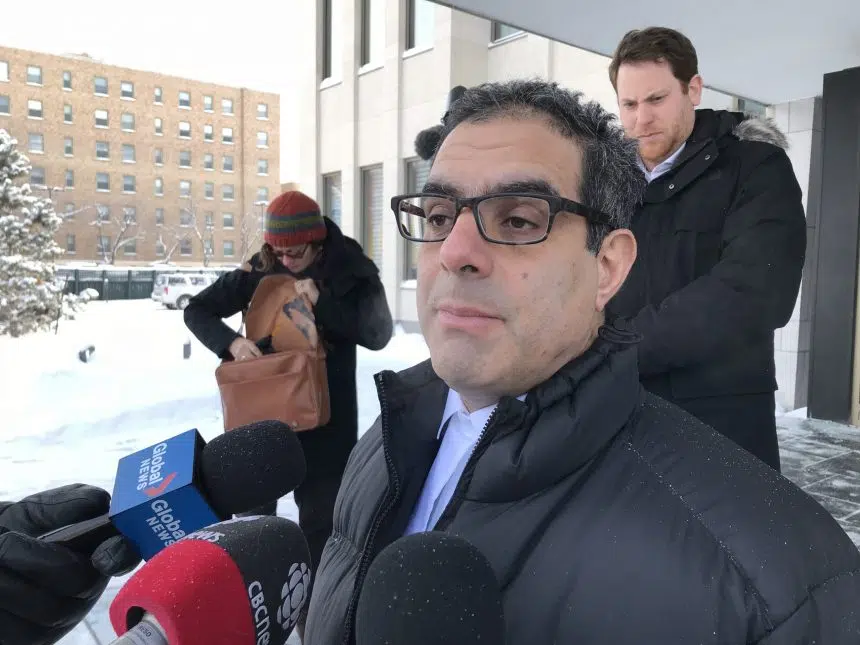The case over the carbon tax had been months, even years, in the making, and on Wednesday morning it got underway in a Regina courtroom.
Day one was all about opposition to the carbon tax and support for the Saskatchewan Government.
The lawyers for the Saskatchewan Government took the whole morning –about three hours – to lay everything out. They reserved about a half hour of time for the end of the second day to be able to address the intervenors’ arguments.
Those lawyers, Mitch McAdam and Alan Jacobson, spoke about federalism, unwritten rules of the constitution, and federal powers to reach into provinces’ dealings.
In his opening, McAdam said this case is not about whether climate change is real – pointing out that the Saskatchewan government isn’t filled with a bunch of climate change deniers – and that it’s not about whose plan for reducing emissions is better. McAdam said the case is purely about jurisdiction.
The Sask. government also argued that climate change doesn’t meet the test to allow the federal government to take emergency powers.
McAdam and Jacobson both warned against allowing the federal government the leeway to impose this tax – saying it could lead to overreaches and “mischief” in the future.
McAdam weaved a few quips and gibes into his presentation, eliciting a couple of giggles from the public in the other room. Neither public nor media were allowed in the Court of Appeal chambers as it was full of lawyers for the intervenors.
After lunch, seven supporters of the Saskatchewan Government’s position presented their arguments. The Ontario and New Brunswick governments got 30 minutes each to speak, while the other five intervenors got 15.
The Canadian Taxpayers’ Federation (CTF) was one of those intervenors. An excited Todd McKay spoke to media on behalf of the CTF.
“Nobody disagrees that the environment is important, everybody does, the question here is whether a tax is the way to fix it. We don’t think that’s the case,” said McKay, explaining the CTF’s stake in the case.
McKay praised the Sask. government’s presentation, saying the highlight for him was the argument that the carbon tax is, indeed, a tax, while the federal government is presenting it as a regulatory charge.
“For Ottawa to somehow suggest that a carbon tax isn’t a tax is, frankly, silly. Of course it’s a tax – that’s what this is – it feels weird that we have to have an argument about that in court.”
Intervenors on the other side of the case were much less complimentary.
Professor Amir Attaran is the counsel for the Athabasca Chipewyan First Nation, which is arguing that its environment is going to be devastated by climate change.
Attaran called the Government of Saskatchewan’s arguments poor. He said the lawyers seemed ill-prepared, didn’t seem to be able to answer the justices’ questions to their satisfaction, and couldn’t explain why carbon pricing is supposed to be unconstitutional.
Attaran and lawyers for the other eight intervenors supporting the carbon tax will get to have their say on Thursday afternoon.
The Government of Canada is set to take the morning for its arguments.











